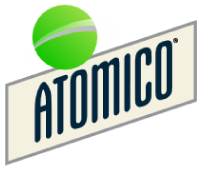Vitamin B7 (Biotin)
What is it: Biotin or vitamin B7 is another of the B complex vitamins and water-soluble like the others. Also called vitamin H,
Functions/Benefits: All B vitamins are important for health, but Biotin specifically aids in keeping your skin, hair, nails, liver and nervous system healthy and functionating properly. It is also very important for pregnant mother's as this vitamin aids in embryotic growth.
Food Sources: Foods high in biotin include egg yolks, organ meats, nuts, nut butters, soybeans, whole grains, cauliflower, bananas and mushrooms, sweet potatoes, spinach and broccoli.
Deficiency/Toxicity: Deficiency is rare with people that have healthy diets, but symptoms of low levels of biotin would be hair loss or a red scaly rash. Because this vitamin is water-soluble, toxicity is not common and highly unlikely as the body simply remove of excess amounts through urine.
Fun Factoid: This B vitamin get's it's other name, vitamin H, from the German words Haar and Haut, which mean "hair" and "skin". Don't let it confuse you, Biotin is in fact a B complex vitamin.
| Life Stage | Recommended Amount |
|---|---|
| Birth to 6 months | 5 mcg |
| Infants 7–12 months | 6 mcg |
| Children 1–3 years | 8 mcg |
| Children 4–8 years | 12 mcg |
| Children 9–13 years | 20 mcg |
| Teens 14–18 years (boys) | 25 mcg |
| Teens 14–18 years (girls) | 25 mcg |
| Adults (men) | 30 mcg |
| Adults (women) | 30 mcg |
| Pregnant teens | 30 mcg |
| Pregnant women | 30 mcg |
| Breastfeeding teens | 35 mcg |
| Breastfeeding women | 35 mcg |
Below are sources and further studies to review on vitamin B7.
Biotin Fact Sheet for Health Professionals
Biotin Fact Sheet for Consumers
Pregnancy and Lactation Alter Biomarkers of Biotin Metabolism in Women Consuming a Controlled Diet

